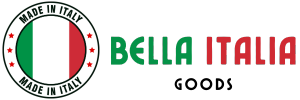The healthcare system in Italy is renowned for its high-quality and efficient services, making it an attractive destination for expats seeking medical care. The country’s universal healthcare system, known as Servizio Sanitario Nazionale (SSN), provides coverage to all citizens and legal residents, regardless of their income or social status.
In this guide, we will explore the key aspects of the Italian healthcare system that expats should be aware of. From understanding the basic structure and principles of SSN to knowing your rights and obligations as a patient, we aim to provide you with a comprehensive overview of what to expect from the Italian healthcare system.
We will also delve into important topics such as access to primary care, emergency services, and specialized treatments. By the end of this guide, you will have a better understanding of how to navigate the Italian healthcare system as an expat and ensure that you receive the best possible care.
Understanding Italy’s Healthcare System
Italy’s healthcare system is a blend of public and private services, ensuring comprehensive coverage for all residents.
Known as the Servizio Sanitario Nazionale (SSN), the public healthcare system provides universal coverage, funded primarily through taxes. This model ensures that essential medical services are available to everyone, regardless of their financial status. Expats will be pleased to know that the SSN offers a wide range of services, from routine check-ups to specialized treatments.
In addition to the SSN, Italy offers private healthcare services. These are often sought after for their shorter waiting times and access to private facilities. Private healthcare can complement the public system, providing additional options for those who require or prefer them. Understanding the balance between public and private services is crucial for expats, as it allows them to tailor their healthcare choices based on their individual needs and preferences.
Registering for Public Healthcare

For expats wishing to access the SSN, registration is a straightforward process. Upon obtaining residency, expats can enroll in the SSN by visiting their local health authority (Azienda Sanitaria Locale, or ASL). Registration typically requires proof of residency, a valid ID, and a tax code (codice fiscale). Once registered, expats receive a health card, granting them access to a wide array of healthcare services.
It’s important to note that while the SSN covers many healthcare services, some may require out-of-pocket payments or co-pays. These costs are generally minimal compared to private healthcare fees. Expats should familiarize themselves with the specific services covered under the SSN and any potential charges to avoid surprises.
Navigating the Private Healthcare Sector
Private healthcare in Italy offers expats additional options for medical care. Private facilities are known for their advanced technology, personalized service, and shorter wait times. Many expats choose private healthcare for specialized treatments or procedures not readily available in the public sector. Additionally, private health insurance is an option for those seeking more comprehensive coverage.
When considering private healthcare, it’s essential for expats to research and compare different providers. Costs can vary significantly, so understanding the pricing structure and available services is crucial. Most private facilities offer multilingual support, making communication easier for non-Italian speakers. Ultimately, private healthcare can be a valuable complement to the public system, offering expats a broader spectrum of healthcare choices.
Finding a General Practitioner
One of the first steps for expats accessing healthcare in Italy is selecting a general practitioner (GP). Known as “medico di base,” GPs serve as the primary point of contact for healthcare needs, offering routine check-ups, prescriptions, and referrals to specialists. Expats can choose their GP upon registering with the SSN, and they may change their GP if desired.Finding the right GP involves considering factors such as location, language proficiency, and personal rapport.
Many expats prioritize GPs who speak their native language or English to ensure clear communication. Recommendations from fellow expats or local communities can also be valuable in identifying highly regarded GPs. Establishing a strong relationship with a GP is essential, as they play a central role in managing overall health and well-being.
Accessing Specialist Care

For specialized medical needs, expats may require consultations with specialists. Italy’s healthcare system offers a wide range of specialists, from cardiologists to dermatologists. Referrals from a GP are typically necessary to see a specialist within the public system, ensuring coordinated and comprehensive care.
Specialist appointments may have varying wait times, depending on the region and the demand for specific services. Expats should plan accordingly and schedule appointments well in advance when possible. For those seeking faster access, private specialists are an option, albeit at an additional cost. Navigating specialist care involves understanding the referral process and exploring both public and private options based on individual needs.
Emergency Medical Services
Italy provides efficient emergency medical services, ensuring timely care during critical situations. The emergency number to dial is 118, connecting callers to ambulance services and immediate assistance. Public hospitals offer emergency care to all residents and visitors, ensuring access to life-saving treatments without upfront payment.
Expats should familiarize themselves with the location of nearby hospitals and emergency facilities, particularly if they have specific medical conditions. It’s important to carry identification and relevant medical information, such as allergies or ongoing treatments, to facilitate prompt and accurate care. In emergencies, language barriers can be challenging, so having basic Italian phrases or translation tools can be beneficial.
Understanding Prescription Medications
Prescription medications in Italy are regulated and widely available through pharmacies. Expats can obtain prescriptions from their GP or specialists, with many medications covered by the SSN. For non-Italian speakers, it may be helpful to bring a list of current medications and their generic names to assist healthcare providers in prescribing equivalent alternatives.
Pharmacies, known as “farmacie,” are easily accessible and provide expert advice on medications and health-related inquiries. Expats should be aware that some over-the-counter medications available in their home country may require a prescription in Italy. It’s advisable to consult with healthcare professionals regarding any specific medication needs or concerns.
Maternity and Pediatric Care

Italy offers comprehensive maternity and pediatric care through both public and private healthcare services. Expectant mothers can access prenatal care, childbirth services, and postnatal support through the SSN, ensuring safe and healthy pregnancies. Pediatric care is also readily available, with pediatricians serving as primary care providers for children.
Expats planning to start or expand their families in Italy will find a supportive healthcare system that prioritizes maternal and child health. Routine check-ups, vaccinations, and developmental assessments are part of the standard care provided to children. Navigating maternity and pediatric care involves understanding the available services and selecting healthcare providers that align with family preferences.
Dental and Vision Care
Dental and vision care are essential aspects of overall health, and Italy offers both public and private options for these services. While the SSN provides limited coverage for dental and vision care, many expats choose private providers for more comprehensive treatments and shorter wait times.
Regular dental check-ups and vision exams contribute to maintaining optimal health, and expats should prioritize these services in their healthcare plans. Private dental and vision insurance is available for those seeking additional coverage. Comparing providers and understanding coverage options will help expats access the care they need for oral and visual health.
Mental Health Services
Mental health is a vital component of well-being, and Italy recognizes the importance of accessible mental health services. Both public and private options are available, offering support for various mental health needs. Expats can access counseling, therapy, and psychiatric care through the SSN or private practitioners.
Language and cultural differences may impact the choice of mental health providers, so expats may seek professionals who offer services in their native language. It’s important to prioritize mental health and seek help when needed, as maintaining emotional well-being is crucial for a successful expat experience. Exploring available resources and reaching out to support networks can enhance mental health care.
Building a Supportive Healthcare Network
Creating a supportive healthcare network is essential for expats navigating Italy’s healthcare system. This involves establishing relationships with healthcare providers, engaging with local communities, and staying informed about available resources. Expats can benefit from online forums, expat groups, and local events that facilitate connections with others who share similar experiences.
Building a network also means understanding health insurance options, including private insurance that complements the SSN. Expats should assess their individual healthcare needs and financial considerations when selecting insurance plans. By fostering a comprehensive support system, expats can enhance their overall healthcare experience and enjoy a fulfilling life in Italy.
Why Healthcare Planning is Crucial for Expats
Navigating a new healthcare system can be overwhelming, particularly if it involves moving to another country. However, planning and researching healthcare options beforehand can alleviate stress and ensure access to quality care. Expats should prioritize their health and well-being by understanding Italy’s healthcare system and its services.
Having a comprehensive healthcare plan in place also contributes to a smoother transition and helps expats settle into their new home more comfortably.
By learning about available resources, establishing relationships with healthcare providers, and building a support network, expats can confidently navigate the Italian healthcare system and enjoy all that this beautiful country has to offer. So, it is crucial for expats to put time and effort into healthcare planning to ensure a positive and healthy expat experience.
How Much Does Healthcare in Italy Cost?

The cost of healthcare in Italy varies depending on the individual’s healthcare needs and choices. The SSN covers most essential medical services, but expats may opt for private insurance to supplement their coverage or access private healthcare providers.
Private insurance premiums can range from €50 to €200 per month, depending on the level of coverage and services included. Out-of-pocket expenses may also apply for certain treatments, medications, and specialist visits. Expats should consult with potential insurance providers and carefully review policies before making a decision.
Also, expats should budget for other healthcare costs such as dental and vision care, which are not covered by the SSN. Private dental procedures can cost a minimum of €50 for a basic check-up to several thousand euros for complex treatments.
FAQs
How does the European Health Insurance Card work for expats in Italy?
The European Health Insurance Card (EHIC) allows expats from EU countries to access healthcare services in Italy under the same conditions as Italian citizens. It covers necessary medical treatment provided by the Italian national healthcare service, helping to reduce medical expenses during your stay.
What are the options for health insurance in Italy for expats?
Expats in Italy can choose between enrolling in the Italian national healthcare service or opting for private health insurance options. While the national health service provides comprehensive coverage, many expats prefer private health insurance for faster access to private hospitals and private healthcare facilities.
Are private hospitals and clinics available to expats in Italy?
Yes, expats have access to private hospitals and private clinics in Italy. These private healthcare facilities often offer shorter wait times and personalized care. To use these services, expats typically need private health insurance options, which can cover a variety of medical expenses.
What should expats know about the Italian national healthcare service?
The Italian national healthcare service provides a wide range of medical services to both Italian citizens and expats. While it covers most essential treatments, some expats opt for private healthcare to access specialized services or private clinics. It’s important to understand the scope of services and potential costs involved.
Conclusion
Expats moving to Italy should prioritize their health and well-being by researching and planning for healthcare. Understanding the available services, building a support network, and selecting appropriate insurance coverage are crucial steps in navigating the Italian healthcare system.
By being proactive and informed, expats can access quality healthcare and enjoy a fulfilling expat experience. So, it is advisable to consult with healthcare professionals regarding any specific medication needs or concerns.




